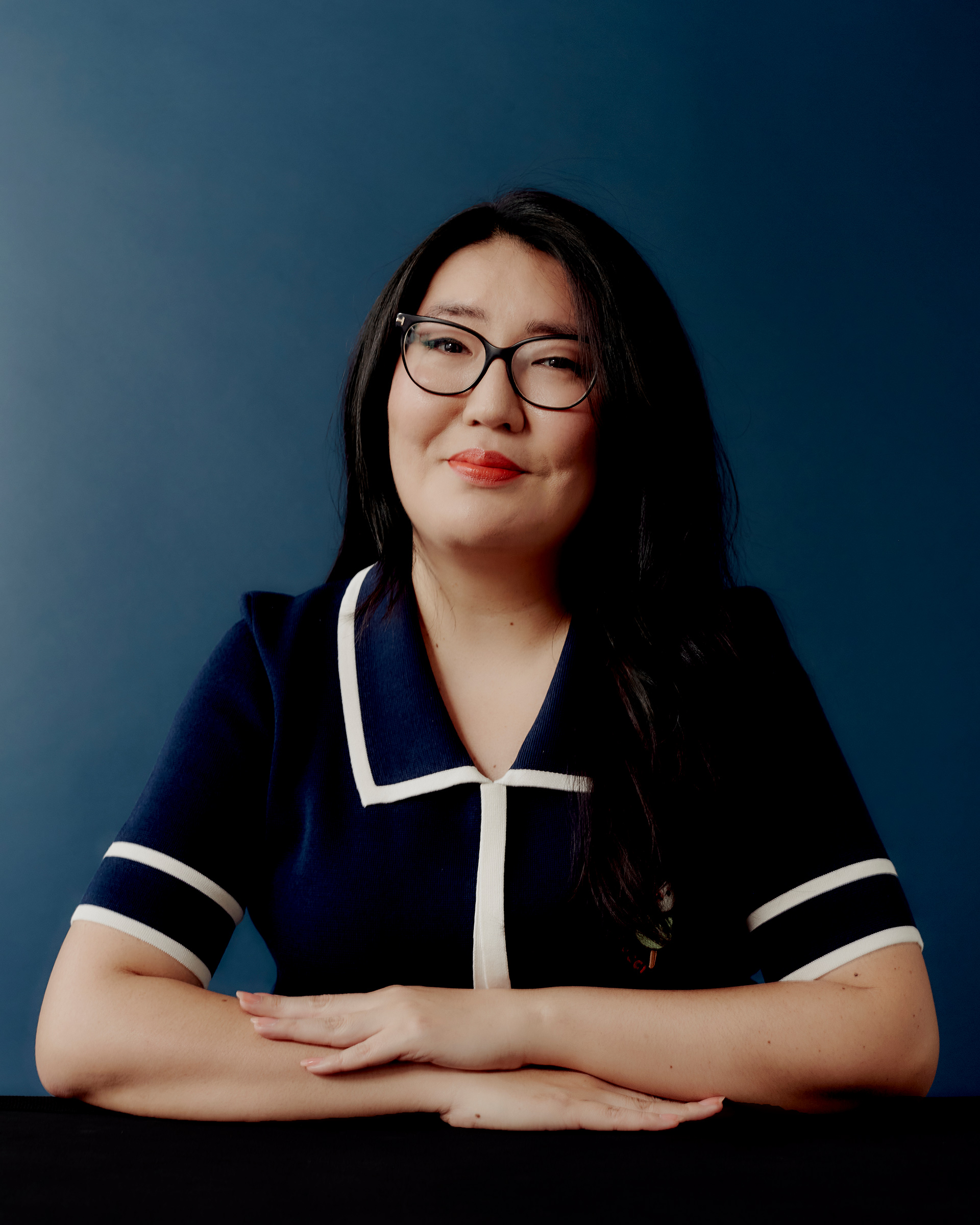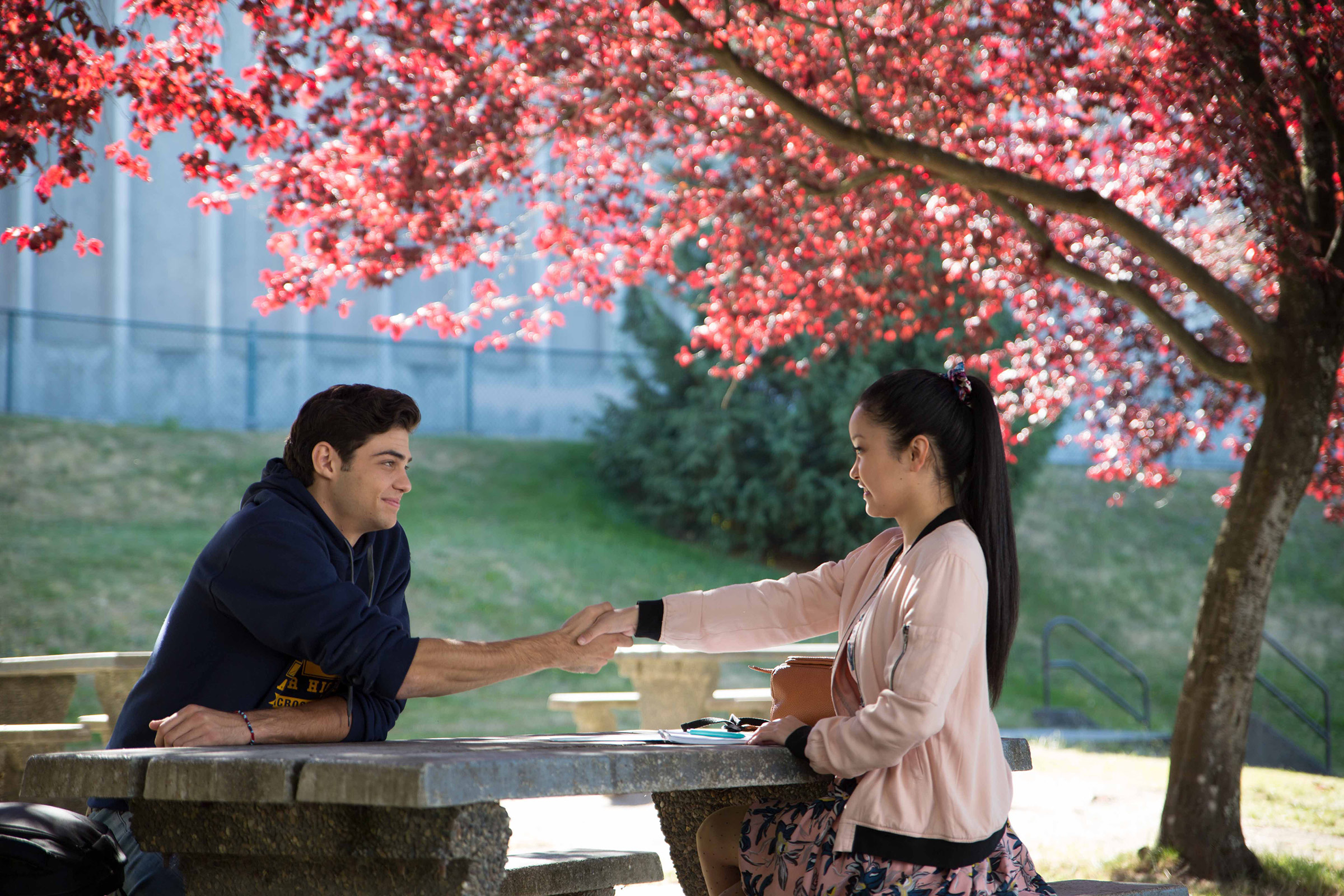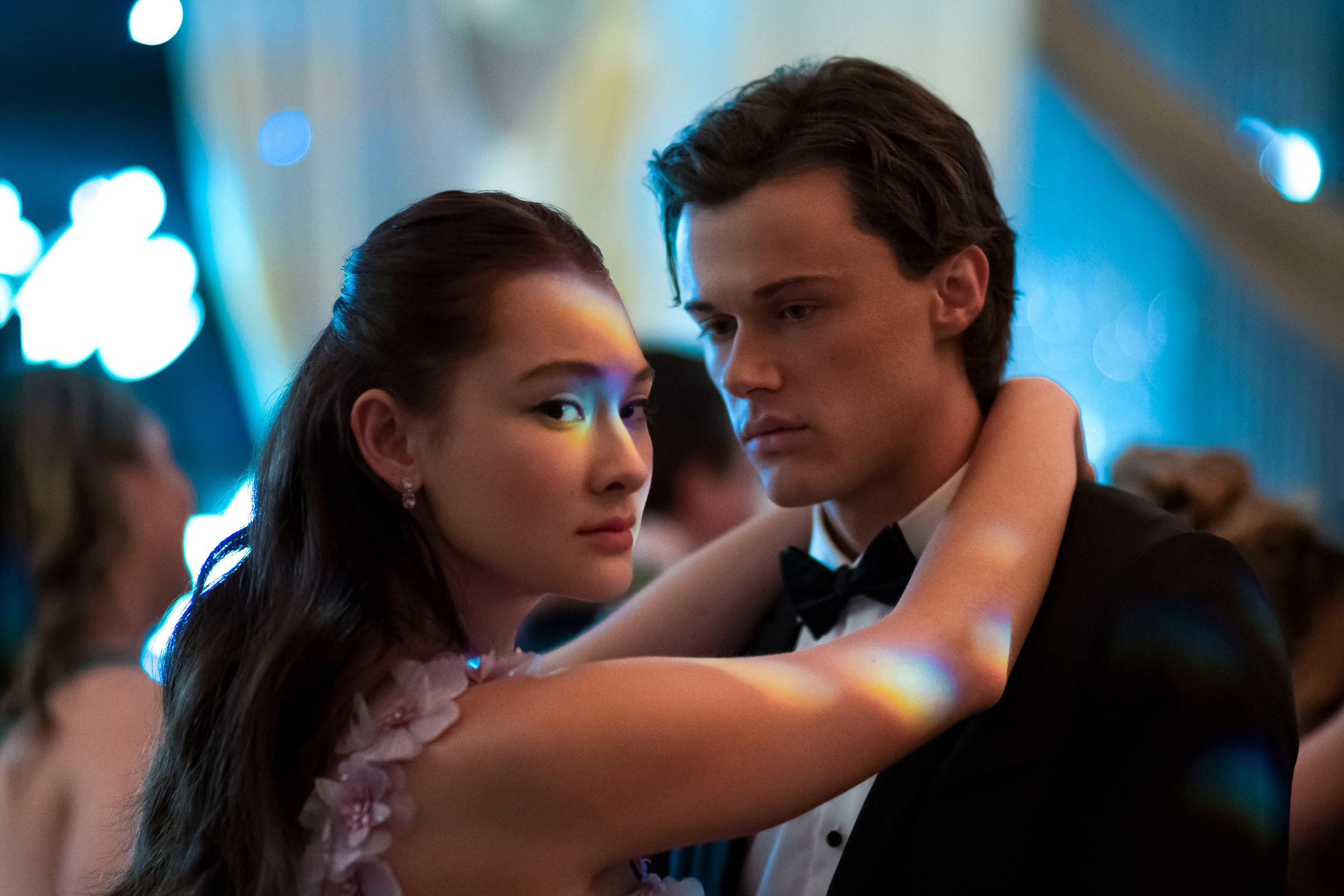
On a warm, early-summer evening last year, a crowd of adolescent girls squeezed together on folding chairs in the rare-book room of the Strand bookstore in New York City. Hushed chatter filled the space as they waited for the sold-out event to begin. “Just think,” a teen whispered to her friend, “when she walks in, we’ll be breathing the same air as her.”
It’s the kind of comment usually heard in the vicinity of pop stars and actors. But that night, the audience was there for an author turned producer: Jenny Han.
Han takes a moment when she hears this story. We’re at an Alice in Wonderland–themed tea shop on the Upper East Side, an array of scones and clotted cream spread out between us. Our whimsical setting was Han’s choice, and it’s one that’s easy to imagine serving as the backdrop for a first date in one of her romantic comedies. “That makes me want to cry,” she says, setting down her dainty cup.
More from TIME
Han, who made her debut in 2006 and has since published 10 additional books for and about young people, has long inspired big feelings in her readers. She had a past life as a children’s librarian, and that little strand of code is still in her DNA. It’s there in her signature cat-eye glasses, in her ability to shift instantly from serious to playful, and in the way she talks about writing for young readers. Adults pick up books and forget what they read shortly after. “As a kid, you read stories that you remember for your whole life,” Han says. Her hopeful coming-of-age novels, including the best-selling To All the Boys I’ve Loved Before and The Summer I Turned Pretty trilogies, center girls entrenched in the heady dramas of first love. Her characters are visceral and easy to root for—whether you’re an adolescent relating to them in real time or an adult looking back.
Read More: To All the Boys Author Jenny Han Gives Her Best Love Advice
Building on her success as an author and a trail-blazing Asian American woman in YA—To All the Boys, which featured an Asian girl on the cover, was a notable anomaly when it hit the New York Times best-selling children’s list—Han, 42, has also become one of the biggest names in teen movies and TV, thanks to the popular adaptations of her work. She’s been dubbed Gen Z’s Nancy Meyers, sought out by collaborators like Shonda Rhimes, and signed an exclusive deal with Amazon Studios.
Han is no stranger to an emotional meet-and-greet. She knows what her books mean to readers. But the story about her breathless fans hits a bit different today because it’s a reminder of how things have changed. Over the past few years, as the reach of her work has exploded, she hasn’t been able to connect with her readers on such a personal level. This is what happens when you become a brand-name producer: your projects enter the delirious, social-media-driven world of Big Fandom—a world where everyone has an opinion.
Adjusting has been a process, and Han has become more deliberate about what kind of feedback she allows herself to absorb. “When you’re trying to be creative and openhearted, you can’t get locked up and scared, because then you’re only thinking about what people are going to say about you,” she says. “First and foremost, I have to please myself as the storyteller.”
Han grew up in Virginia writing stories in her journals, studied psychology and English at the University of North Carolina at Chapel Hill, and moved to New York City to earn an MFA. She was barely an adult herself—still in college—when she started her first book, Shug, about a middle schooler, and that tender understanding of the highs and lows of growing up still shines through in her work: a Jenny Han story is an intimate and vulnerable one, but it’s also, invariably, a hopeful one.
To All the Boys—her trilogy about Lara Jean, a teen who discovers her little sister has mailed the secret love letters she wrote to her past crushes—is comfort food with a delectable premise. And it’s the project of Han’s that slammed open the door to Hollywood. The first book came out in 2014, and a Netflix movie followed in 2018. Han was an executive producer on the film, which made instant stars of Lana Condor and Noah Centineo and disproved the industry’s long-held assumption that a movie about an Asian American teen couldn’t find a broad audience. Netflix adapted both sequels.

Next came last year’s launch of the TV adaptation of Han’s Summer series on Prime Video—Han leveled up her involvement, serving as co-showrunner. The first season followed 16-year-old Belly Conklin (Lola Tung) through a summer with her family at their friends’ beach house as she navigated confusing feelings for Conrad and Jeremiah Fisher, brothers who finally see her as more than a little kid. Its which-pair-do-you-ship love triangle and Taylor Swift–fueled soundtrack inspired passionate tributes and debates—on TikTok, the hashtag #thesummeriturnedpretty has 6.6 billion views, a number sure to grow when Season 2 premieres July 14, introducing more intense themes as the characters cope with a major hardship.
Han’s snowballing success, she realizes, is unconventional. For a long time, Hollywood preferred to keep authors away from adaptations, fearing they would resist changes to their work. But Han embraces them. She stays engaged by asking herself what she’d do if she were writing these stories from scratch today. A key example: in the books, Belly is white—Han had been rejected by publishers when she tried to sell a different novel with an Asian American protagonist before Summer—but in the show, she wrote Belly as a biracial Korean American and introduced more characters of color and queer characters.
Watch: Constance Wu and Jenny Han on the Power of Inclusive Storytelling
While most readers welcomed those updates, not every change went unchallenged. Tung remembers fans sharing their grievances when they saw in the trailer for the first season that Han had added a new storyline about a debutante ball. “There’s this idea that some things are done because whatever higher-ups want you to,” Tung says. “But Jenny’s so intentional with every scene, every costume, every word. She will really fight for the things she believes in, and it usually ends up being exactly what people want.”
Still, Han understands that some things are sacred. There’s a scene in the second book—and second season—of The Summer I Turned Pretty that readers have shorthanded “the cocoa scene.” Belly and Conrad have absconded to the beach house in winter, alone together for the first time in their favorite place. There’s dusty hot chocolate, a Simpsons mug, fluttering nerves, and some very meaningful kissing. Han knows how crucial it was to get that scene right. She wrote the episode herself, and she blocked out the visuals and music just so with the director. It was hot when they were filming in Wilmington, N.C., and the actors were chafing against the idea of layering on winter clothes. At tea, Han does an impression of herself, a growl in her voice, as she remembers ordering Tung and her castmate Christopher Briney to “Put! Those! Sweaters! On!”
Wrangling actors in their late teens and early 20s, Han sometimes feels like a circus ringmaster. Her job is to keep things on track, but also to allow for levity and joy. “I’m like: Everybody stop laughing,” she says, mimicking her serious voice again. “But you need that energy too. You don’t want to dim all the enthusiasm and the effervescence and the fun.” Han rented a boat and took the cast out for a day off, and she hosted them for taco night at her place in New York. To Tung, Han is more than an on-set boss. A stranger mistook them for mother and daughter earlier this year on the train to the White House Lunar New Year celebration. And during filming, Han surprised her on her birthday with a dress she’d been eyeing at a local vintage store—Tung had mentioned it only once, but Han found it and had it tailored to her exact measurements. “It was so special,” Tung says. “I was like, how are you even doing this when you’re doing everything, all the time?”

“Everything” is indeed a lot: Han is currently working on a film concept, an idea for a limited series, another for a regular series, an adult novel, and two YA novels, plus looking ahead to a second season of her To All the Boys spin-off XO, Kitty, which launched on Netflix in May and was renewed in June. And, TIME can exclusively reveal, Amazon has picked up Han’s first-ever project for adults: a film she envisions as a homage to classic, Nora Ephron ’90s romantic comedies, featuring actors of color in the leading roles. “It’s a New York story about a writer, as many of my stories are,” Han says. Her Summer collaborator Karen Rosenfelt will produce alongside her.
The prospect of adult projects from the mind of Jenny Han should be an enticing one for anyone who struggles under the weight of the world. Her work has a way of making you feel like everything’s going to be OK—and she genuinely believes it will be. But that’s not to say she believes in perfect, tidy happy endings. Han is perpetually learning to cope with the fact that nothing in life is permanent, and she finds solace in writing about people who are, regardless of age, facing the same challenge and finding ways to press on. That’s what coming-of-age stories mean to her, and why she’s devoted to telling them. “Everything will change, over and over again,” Han says. “But every day you’re surviving and finding beauty, even through the hard things.”
More Must-Reads from TIME
- Cybersecurity Experts Are Sounding the Alarm on DOGE
- Meet the 2025 Women of the Year
- The Harsh Truth About Disability Inclusion
- Why Do More Young Adults Have Cancer?
- Colman Domingo Leads With Radical Love
- How to Get Better at Doing Things Alone
- Michelle Zauner Stares Down the Darkness
Write to Lucy Feldman at lucy.feldman@time.com